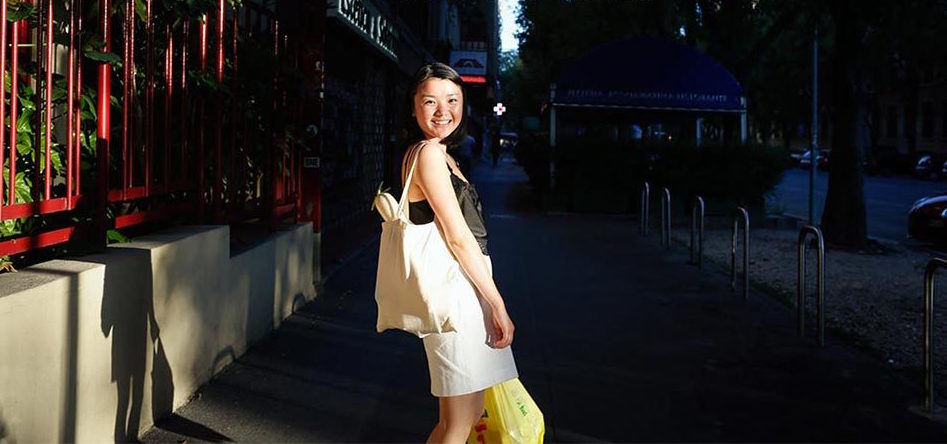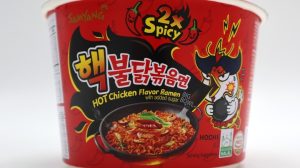Level 1
Chinese Girl Goes from Student to Sichuan Cuisine Chef in Italy
Chinese Girl Goes from Student to Sichuan Cuisine Chef in Italy
中国女孩在意大利做四川菜
中国女孩在意大利做四川菜


AA
AA
AA
AA
Simplified
Traditional



Pinyin



Pinyin
Keywords
女孩 - nǚhái - girl
意大利 - Yìdàlì - Italy
做 - zuò - to do / to make
四川 - Sìchuān - Sichuan (Province)
菜 - cài - dish / cuisine
米兰 - Mǐlán - Milan (city in Italy)
学习 - xuéxí - to learn / to study
衣服 - yīfu - clothes
喜欢 - xǐhuan - to like
工作 - gōngzuò - work
好吃 - hǎochī - tasty / delicious (see grammatical points)
Grammar
在 + Place - Expressing to be located in or at a certain place with "zài + Place"
中国女孩在意大利做四川菜
在米兰学习了一年,她不喜欢做衣服了。
Measure Word - Expressing the number of sth with an object specific measure word in the form of "Number + Measure Word + Noun" (if the number is one, you can omit it and use the measure word by itself)
有一个中国女孩叫子岚(Zilan),今年23岁。
Subject + Number + 岁 - Expressing the age of the subject with "Subject + Number + suì"
有一个中国女孩叫子岚(Zilan),今年23岁。
Subject + 去 + Place - Expressing "to go" to a place with "Subject + qù + Place"
2012年,她去了意大利的米兰学习做衣服。
Verb / Verb Phrase + 了 - Expressing that an action has been completed with "Verb / Verb Phrase + le"
2012年,她去了意大利的米兰学习做衣服。
在米兰学习了一年,她不喜欢做衣服了。
Noun / Pronoun + 的 + Noun - Expressing a possessive particle with "Noun / Pronoun + de + Noun" (indicate a relationship of possessor / possession)
2012年,她去了意大利的米兰学习做衣服。
New Situation + 了 - Expressing that there is a change of state or that the action has just happened "now" with "New Situation + le"
在米兰学习了一年,她不喜欢做衣服了。
Phrase + 的 + Noun - Expressed to link a noun to a preceding phrase with "Phrase + de + Noun"
她做的菜很好吃
Noun + 很 + Adj. - Expressing "very" or to link a noun and an adjective with "Noun + hěn + Adj." (sometimes the 很 is translated as "very" but often it is a link between a noun and an adjective)
她做的菜很好吃
Subject + Adverb + 好 + Sense Verb - Expressing that something offers a "good sensory experience" with "Subject + Adverb + hǎo + Sense Verb"
她做的菜很好吃
Noun 1 + 和 + Noun 2 - Expressing "and" with "Noun 1 + hé + Noun 2" (used to link nouns only)
中国人和意大利人都很喜欢。
Subject + 都 + Verb Phrase - Expressing "both / all" with "Subject + dōu + Verb Phrase"
中国人和意大利人都很喜欢。
Proper Nouns
Idioms
Ready to complete the lesson's exercises?

Complete Assignment Reading
Live dictionary
 Stroke
Stroke Write
Write


























